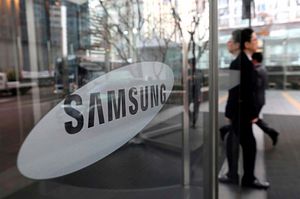The Trump administration is trying, in its own clumsy way, to convince Western companies to abandon China. With the benefit of years of exposure, South Korea may have a leg up on bailing out of the China market. According to the South China Morning Post, South Korean firms have been reducing their exposure to the Chinese market for several years, in preference for investment and supply chain diversification in Vietnam.
The SCMP report describing the decision-making of firms such as Lotte and Samsung gave several reasons for this, including the threat of political uncertainty in China, concerns over industrial espionage, and the need to diversify in face of the threat of U.S. sanctions. Chinese protests of the U.S. THAAD deployment in South Korea, for example, left South Korean companies unsettled about the security of their investments. Similarly, the unstable regulatory landscape in China, where provincial and central governments have different priorities and strategies, often left South Korean companies at a loss regarding nationwide strategy. Finally, South Korean firms have, due to a variety of factors, found their competitive advantages over local firms eroded in the Chinese market.
The SCMP report suggests that there’s an upside for this trend for South Korea, as its firms have a headstart on shifting their supply chains to other countries. A primary target of South Korean interest has been Vietnam. While Vietnam poses some of the same problems as China, it is relatively less capital saturated, is less confrontational with the West, and has a less competitive domestic environment. In the future, other nations may follow South Korea’s lead.
That said, there’s some question as to how Japan’s supply chain decisions will affect this policy. Japan has recently decided to make transfer of some manufacturing technologies to South Korea more difficult. This could complicate the effort of South Korean firms to untangle themselves from China, especially if the Chinese step up with substitute equipment. The Japanese decision has general been seen as a “win” for China, although South Korean firms could still seek alternative supply chains.
In a sense, South Korean divestment from China is precisely what the Trump administration would like to see. Disentangling China from the global economy seems impossible at this point, but if some firms (foreign firms, even) are doing it of their own accord, then the United States could potentially further accelerate the process with careful use of policy tools. On the other hand, the fact that Chinese companies have largely caught up with South Korean firms may mean that the effort is too little, too late.

































